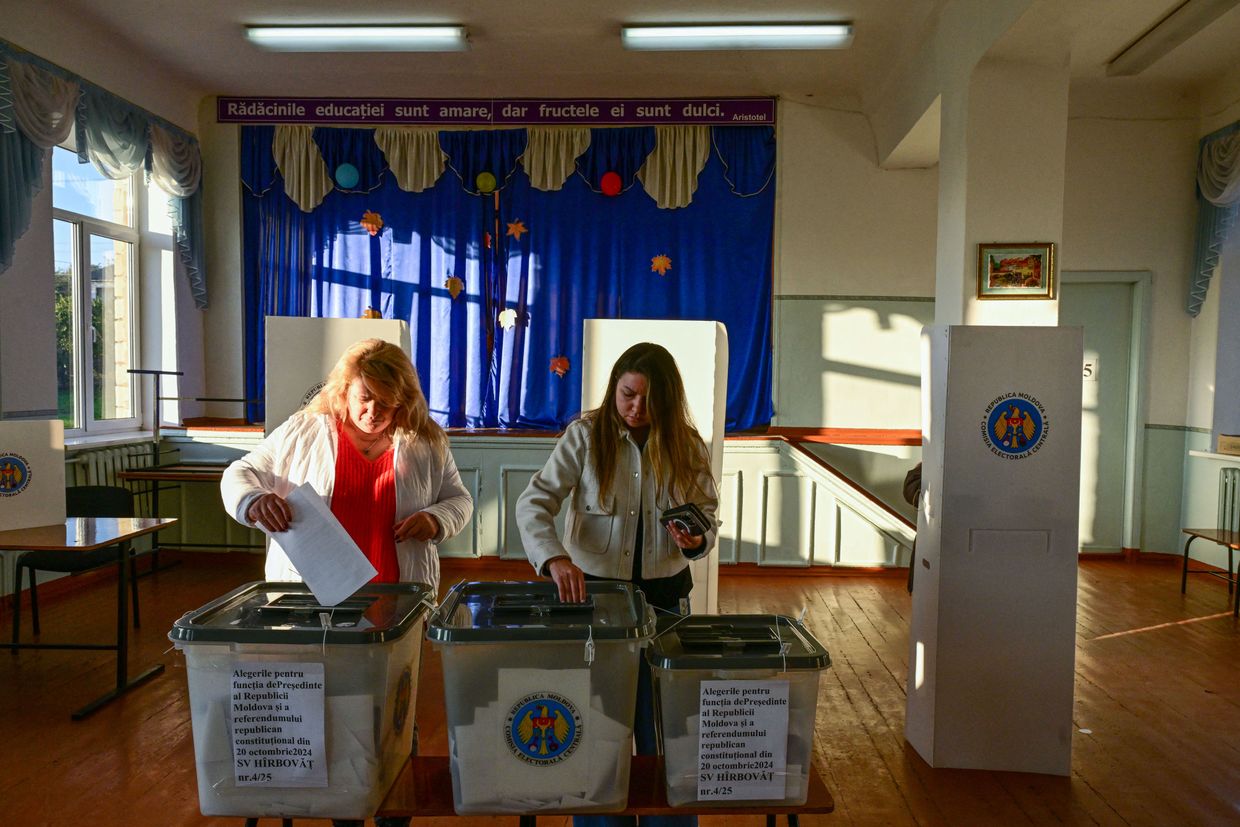Russia summons Moldova's ambassador over 'hostile' attitude to Russian election observers

The Russian Foreign Ministry summoned Moldovan Ambassador Lilian Darius on Nov. 6 to protest Chisinau's allegedly "hostile and discriminatory" actions against Russian election observers, an accusation Moldova rejected.
Pro-EU President Maia Sandu won on Nov. 3 by a margin of about 55.3% to 44.7%, despite what she called an "unprecedented" election interference backed by Moscow.
The Russian-friendly Party of Socialists, who supported Sandu's opponent, Alexandr Stoianoglo, also announced on Nov. 5 that they do not view Sandu as legitimately elected and will not recognize her as president.
Two days after the runoff, Stoinoglo conceded, saying that the presidential election results "showed that we lost, although here in Moldova, we won."
The Russian Foreign Ministry claimed that prior to the first round of voting and the constitutional referendum on European Union accession, which took place on Oct. 20, the Moldovan authorities "unreasonably" denied accreditation to five international observers from Russia.
The ministry claimed that before the second round of the presidential election on Nov. 3, three Russian members of the Office for Democratic Institutions and Human Rights (OSCE/ODIHR) mission were denied entry to Moldova at Chisinau airport despite being accredited by the Moldovan Central Election Commission.
The ministry did not disclose who the international observers from Russia were.
Moldova's Foreign Ministry rejected the Russian accusations, emphasizing that the presidential election met "all national and international standards," according to the preliminary reports of international election observation missions.
"…we refute the unfounded criticisms launched by representatives of the Russian authorities with the aim of manipulating public opinion," the statement read.
"These clumsy attempts to cast doubt on the legitimacy of the elections are nothing but a continuation of malign interference in our internal affairs."
Moldovan authorities, independent observers, and officials from the EU and the U.S. pointed to a malign influence campaign involving criminal networks and political groups tied to Russia. Moldovan lawmakers claimed that Moscow spent millions of dollars backing Stoianoglo.
Sandu has long insisted that the real opponent to her government and Moldova's European path is the Kremlin, which has been waging a hybrid war designed to push Chisinau back into Moscow's orbit in what Sandu described "a fraud of unprecedented proportions."














